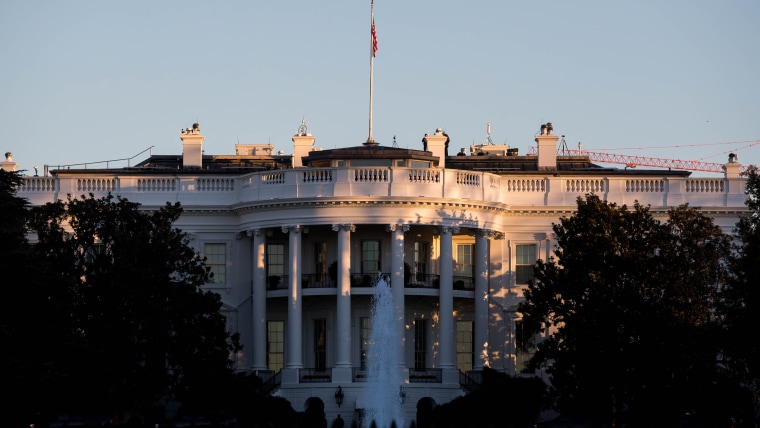Donald Trump's White House has developed an unfortunate reputation for making careless mistakes, especially in writing. The president's recent statement on Sexual Assault Awareness and Prevention Month misspelled "assault" three times, including two different misspellings in the same sentence. In another instance, the White House issued a "fact sheet" that said the United States has two defense secretaries and Australia has a president.
The Washington Post had a report a couple of months ago on Team Trump's typos and error-prone news releases, and the piece wasn't especially short.
But some mistakes are more important than others. Last night, for example, the White House made an extraordinary claim in an official written statement on behalf of Press Secretary Sarah Huckabee Sanders about Iran and nuclear weapons.
"The United States is aware of the information just released by Israel and continues to examine it carefully. This information provides new and compelling details about Iran's efforts to develop missile-deliverable nuclear weapons. These facts are consistent with what the United States has long known: Iran has a robust, clandestine nuclear weapons program that it has tried and failed to hide from the world and from its own people...."
The White House used the same language in a message posted to Twitter, telling the world that Iran "has" a nuclear weapons program.
Not to put too fine a point on this, but the specific wording of the White House's statements was the kind of language that could signal a war -- which is why it was important that Team Trump soon after clarified that Iran "had" a nuclear weapons program and the original statements featured a "clerical error."
NBC News' Andrea Mitchell asked, "How does a statement of this import, putting the White House at odds with the entire U.S. intelligence community, get sent out so carelessly? And why did they correct it on the website but not issue a new statement?"
Those need not be rhetorical questions.
As for what prompted Trump World's stunning mistakes, Israeli Prime Minister Benjamin Netanyahu yesterday hosted a strange presentation yesterday, condemning Iran's old nuclear program.
Even if we put aside serious questions about Netanyahu's credibility, his remarks were difficult to take seriously. The fact that Iran had a nuclear weapons program isn't exactly breaking news: it's why the international nuclear agreement with Iran was struck in the first place. The whole point was to halt the program, which it did.
In fact, Slate's Fred Kaplan made a compelling case that the Israeli prime minister's presentation accidentally made the case for keeping the Iran deal in place.
With this in mind, the "has"/"had" error wasn't the only important mistake in the White House's statement. Team Trump also said Netanyahu provided "new and compelling" information, when in reality, the prime minister's information was old and mundane. Ned Price, the former spokesperson for the CIA, explained yesterday, "What Netanyahu disclosed today was news to the United States ... more than a decade ago."
Senate Foreign Relations Chairman Bob Corker (R-Tenn.) added that the Israeli leader's speech provided "nothing new."
All of which raises the underlying question anew: why does Trump's White House seem so eager to mislead?
